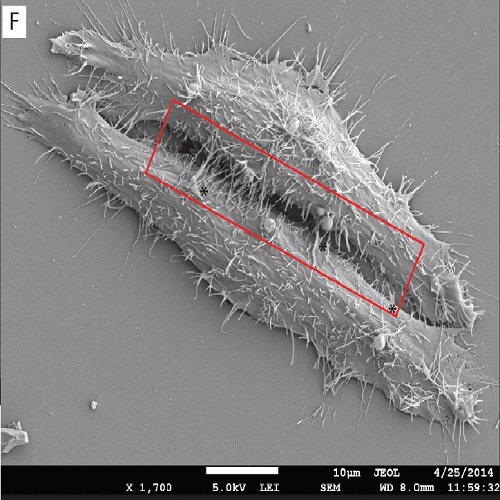Tetraspanin CD9 determines invasiveness and tumorigenicity of human breast cancer cells.
Interaction of breast cancer cells (BCCs) with stromal components is critical for tumor growth and metastasis. Here, we assessed the role of CD9 in adhesion, migration and invasiveness of BCCs. We used co-cultures of BCCs and bone marrow-derived multipotent mesenchymal stromal cells (MSCs), and analyzed their behavior and morphology by dynamic total internal reflection fluorescence, confocal and scanning electron microscopy. 83, 16 and 10% of contacts between MDA-MB-231 (MDA), MA-11 or MCF-7 cells and MSCs, respectively, resulted in MSC invasion. MDA cells developed long magnupodia, lamellipodia and dorsal microvilli, whereas long microvilli emerged from MA-11 cells. MCF-7 cells displayed large dorsal ruffles. CD9 knockdown and antibody blockage in MDA cells inhibited MSC invasion by 95 and 70%, respectively, suggesting that CD9 is required for this process. Remarkably, CD9-deficient MDA cells displayed significant alteration of their plasma membrane, harboring numerous peripheral and dorsal membrane ruffles instead of intact magnupodium/lamellipodium and microvillus, respectively. Such modification might explain the delayed adhesion, and hence MSC invasion. In agreement with this hypothesis, CD9-knockdown suppressed the metastatic capacity of MDA cells in mouse xenografts. Our data indicate that CD9 is implicated in BCC invasiveness and metastases by cellular mechanisms that involve specific CD9+ plasma membrane protrusions of BCCs.

- Oncotarget 2015 Apr 10;6(10):7970-91
- 2015
- Medical Biology
- 25762645
- PubMed
Enabled by:
